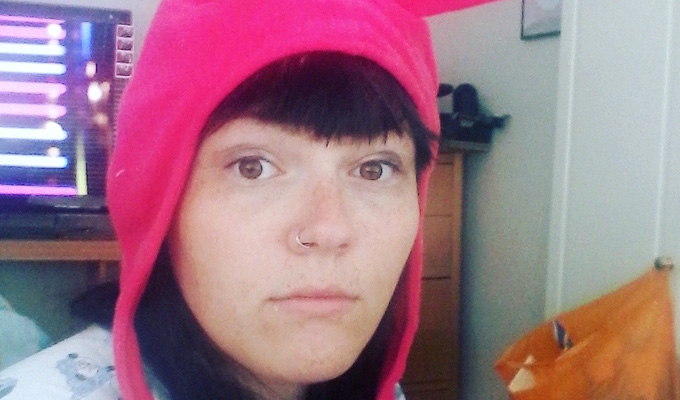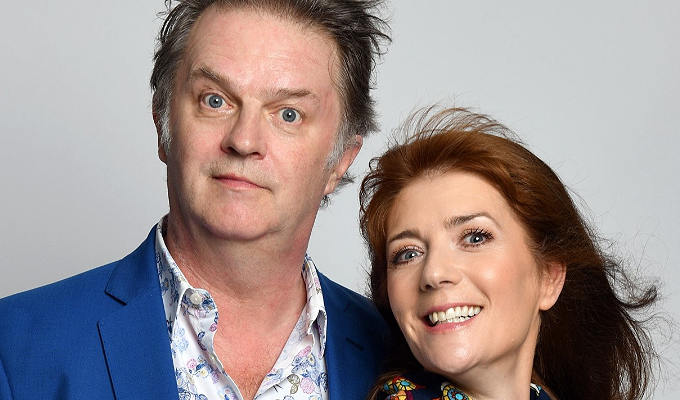
The problem with 'problematic'...
Katherine Hockley on the benefits of saying the wrong thing
I used to run a feminist website, because well, duh, I’m a feminist. And in that role I came across the issue of certain comedians being branded problematic. For some ironic reason, female comedians are judged most scathingly by other feminists, and I read article after article on why Tina Fey, Amy Schumer and/or Lena Dunham were bad feminists who didn’t deserve their success.
Yet this idea that comedy should follow certain rules and regulations sits uncomfortably with me.
The main problem people have with these comedians is that they’re sometimes seen as ‘punching down,’ with the butt of their jokes being someone below them in the social chain. Such things are apparently ‘never funny,’ as I was being told daily, so shouldn’t be given air time, and the people making them should not be rewarded with success or our support.
But this ‘problematic’ category seems confined to female comedians. Should It’s Always Sunny in Philadelphia and South Park be sent to their rooms because of their offensive material, or is it enough that people can switch off?
It seems there are two opposing camps: On the one side, there’s this point of view (let’s all it View A):
‘You can have a good sense of humour without making fun of people. Satire should only put down people who are already in power. If you are bringing down people who are already vulnerable, then you’re just being a dick. It might create laughter, but it’s also gives a green light to racists and sexists that it’s okay to say these things, because someone in the mainstream is saying it and getting away with it.’
Then there’s this, let’s call it View B:
‘Comedy should be immune from any sort of censorship; it is fundamental to human expression. Being offended is such a subjective thing, it’s unjust to then project that at comedy and say, "you can’t say this". Of course you’re allowed to be offended by anything, but then don’t demand that it be taken off TV or not said. You have the right to be offended, but people have the right to offend you as well.’
If we were to stick with View A, it would mean the majority of comedy I find funny would be ruled out. The Office uses David Brent to point out how ridiculous certain points of view are. Do you ally yourself with similar views as that character? Then oh no, you’re David Brent: a pitiful, lonely excuse of a man with no real friends. Character comedy, like Brent or Alan Partridge, is used to show the sad type of person who believes bigoted and outdated views. These people are not glorified or respected, and it is only when the intent behind the offensive jokes is askew that I think it becomes ‘problematic’.
If a raging sexist tells a rape joke to an audience of #lads, there’s no caricature of our culture or deep underlying satire; they’re just genuinely laughing in agreement with a morally abject point of view. The laughter is aiming at the wrong thing, and it’s uncomfortable when that was quite obviously the comedian’s intent. View A is valid when it refers to comedians like this then, as there is no tacit understanding that this is just a joke.
Cue Frankie Boyle. He made the following joke about Katie Price and her disabled son:
‘Apparently Jordan and Peter Andre are fighting each other over custody of Harvey, well eventually one of them'll lose and have to keep him. I have a theory that Jordan married a cage fighter because she needed someone strong enough to stop Harvey from fucking her.’
Boyle discussed the joke a few months later, saying it was intended as a quip about how Price exploits her son as part of her media profile. It feels like the connection between the joke and the explanation is stretching it, and I would be far more inclined to say that Boyle wrote the joke because it would shock the audience rather than force them sit down and consider Katie Price’s use of the press.
Boyle has written some incredibly insightful things on censorship and he obviously doesn’t believe the sentiments behind his jokes, but regardless of the reason behind his joke, I don’t see why we can’t just accept that sometimes comedians will make inflammatory jokes because it’s their job to say the things we’re not allowed to say. Jimmy Carr has made millions from doing this and I doubt there’s really much profound cultural commentary in: ‘What’s worse than finding a maggot in your apple? Rape.’
What I’m saying is that not all dark jokes must have cutting political commentary bubbling under the surface. For me, at least, it is only important that the person telling them does not truly hold negative beliefs. I will only laugh at an offensive joke when I’m sure the person does not believe the sentiment behind it.
But what if you’re not sure if there is malice behind the joke? There are comedians who perform for pure shock value and we don’t receive a compendium of their political and cultural views before every set, so it can be difficult to know whether or not they’re being ‘edgy’ or just actual bastards.
I think it’s down to the audience to work out whether or not there is malice behind the words, and to trust the judgements they make of that comedian in that moment. There was a white male comic performing at Up The Creek once who was making racist jokes, but he had not set his onstage persona up enough for the audience to know whether or not he was being serious. Unsurprisingly, he was booed off stage.
The problem with View B is that if comedy can’t be censored, we’ve got to open the door to the genuine racists, homophobes, and sexists. However, I have faith in the audience, and I believe that they will almost always oust any bigoted comedian before they can truly reach success. But what about the problem of intentions being misunderstood and taken at face value?
Al Murray’s Pub Landlord character is intended to mock the guffawing, xenophobic right-wing British patriot, but some of his fans are those whom he intends to mock. When people take offensive comedy quite literally, does the intent become moot? I don’t think so. People will always read into things to match what they want to hear, so we can’t blame a comedian when a minority misinterprets what is quite obviously a dig at a bumbling stereotype from an Oxford graduate. The majority of us are also not idiots, and can tell pretty accurately the comedian’s intent.
But does that mean if I find something offensive, even though the intention was not malicious, that I should feel free to boo this person off stage? I think this is where people become stubborn. Maybe a joke genuinely upsets them because of personal experiences, or perhaps they don’t want to be associated with that point of view.
But by booing someone off stage because of a single joke you don’t like has to be a selfish (and dare I say offensive) thing to do. By ignoring the ‘problematic’ comedians’ other jokes and focusing on the one I don’t personally like, am I not over-reacting? Others may laugh at the jokes I don’t find particularly funny (Mrs Brown’s Boys…), but I don’t demand that writer or that comedian have their success stripped from them, or their ‘offensive’ jokes not aired.
What it boils down to is whether it is better to have people taking jokes literally and perhaps buying tickets to see a show for all the wrong reasons, or to satisfy those who champion some self-censorship and thus a narrower view of what we should accept as comedy.
Quite clearly I’m plumping for the former, because switching off or turning away from a comedy show that offends you personally is easier on the conscience than regulating speech, even if the joke is on the cusp of socially accepted taste.
Comedy exists to spout these boundary-pushing jokes, so absurd and politically incorrect. Plus people seem to forget that comedy allows us to deal with harsh realities by turning them on their heads and poking fun at them. If we didn’t have this method of dissecting our culture, how would we disarm such barbaric points of view?
By using comedy to show how ridiculous certain viewpoints are, it takes away the power of things like racism and sexism. Comedy is commentary, but it’s also there to make us laugh at things we wouldn’t normally. We laugh at an offensive joke because we know it’s naughty, and that relief is not necessarily a bad thing. Just because you laugh at it, it doesn’t automatically mean you believe that point of view, and I think that’s what people are forgetting.
In the real world, of course, the objectionable views comedians play about with have consequences so when David in your real office makes questionable sexist jokes, "just ignore it, it was a joke" will not do, and I’ll be marching by your side to make an official complaint to HR. Let’s leave the offensive jokes to the professionals, shall we?
Published: 29 Sep 2016






